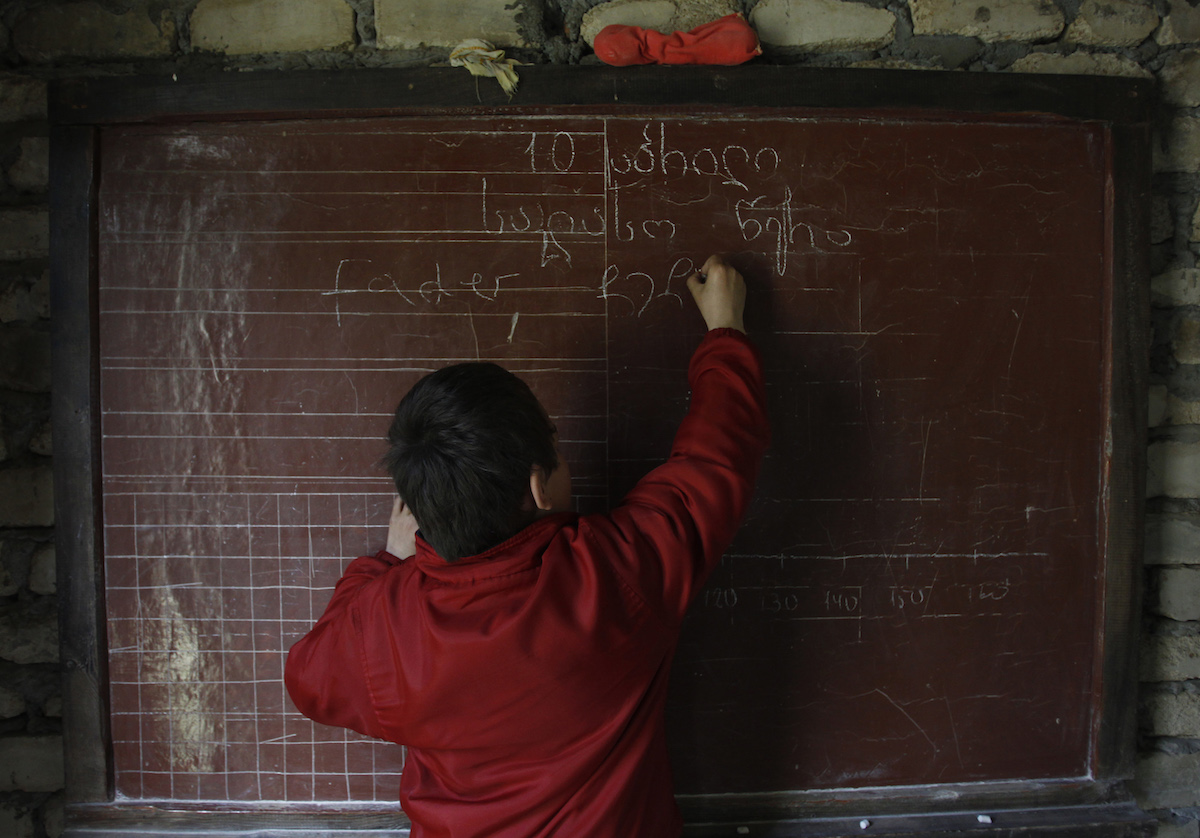Georgian schools get more funding, but quality of education remains poor

The Georgian government doesn’t have an effective, result-oriented general education programme to enforce in schools and continues to rely on outdated methodologies, which is why the quality of school education has been getting worse by the year, reported the NGO ‘Transparency International – Georgia’ after researching Georgia’s school education system.
The report says that the Georgian education system as it is today is only oriented towards making sure that all children have access to education and that schools get the funding they need to accommodate all the students. As for the quality of education, working to improve it is not a priority for the education authorities.
JAMnews has summed up the main findings of the research:
Money is being spent, but to no avail
While the state will have spent twice as much on schools in 2018 than it did in 2011, the quality of education remains extremely low, meaning all the investment has been in vain. This is confirmed by both international research findings and official local statistics.
In the latest rating by the Programme for International Student Assessment [which provides education rankings based on international tests taken by 15-year-olds in maths, reading and science] Georgia ranks eleventh from the bottom of the list of 72 countries.
The Global Competitiveness Report [issued by the World Economic Forum] has ranked it 106th out of 137 countries.
This is echoed by the national statistics: from 2016 to 2018, 77 per cent of pupils successfully passed their school graduation exams, which is a deterioration from 2011 to 2015 when 84 per cent performed well at the exams.
The school graduation exams are one of the measures of the quality of school education. They were first introduced in Georgia in 2011. The results of these exams show that the situation has been deteriorating since 2015: while about 6,600 pupils failed the exams every year between 2011 and 2015, the number increased to about 13,500 from 2016 to 2018.
Teachers are old, insufficiently qualified and poorly remunerated
Aged teachers increasingly prevail in Georgian schools, as young people seem to have little interest in taking up the profession. So, compared to 2012, there are 8 per cent fewer teachers who are younger than 35 in 2018, whereas the number of teachers aged 65 and over has increased by 5 per cent.
There are about 67,000 teachers employed in Georgian schools. More than 86 per cent of them are older than 36, and more than 13 per cent of them are aged 65 and above.
The professional level of teachers is also an issue. In 2017, only 9 people became ‘mentors’, the highest and most prestigious teacher status in Georgia, and only 257 others were awarded the second most important rank in the teaching hierarchy as ‘leading teachers’.
From 2010 to 2017, only 25 per cent of the Georgian teachers passed teacher certification exams. Primary school teachers, as well as teachers of physics, mathematics and foreign languages, proved the worst performers. Predictably, the subjects are where pupils have demonstrated the worst results.
Between 2011 and 2017, the salaries of public school teachers have increased twofold to 548 lari [around 200 USD]. This is almost half of what employees in other sectors of the Georgian economy get paid.
There is no big difference between the salaries of public school teachers and the pay of their colleagues in private schools. The latest data have it that an average salary in private schools amount to 631 lari [245 USD].
The state doesn’t have a clear and articulate strategy for improving the quality of education
Whatever is being invested in schools does not impact the quality of education in any tangible way. The reason it does not is the fact the state has failed to come up with a viable education strategy.




















